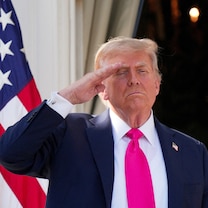
Europe Confronts Trade Shock: Ministers Convene Emergency Talks After Trump’s 30% Tariff Move
On July 14, 2025, European trade ministers convened an emergency meeting in Brussels to craft a strategic response following U.S. President Donald Trump’s unexpected announcement of a 30% tariff on European Union imports, set to take effect August 1. The sudden escalation in trade tensions has sent shockwaves through global markets, prompting a blend of political posturing, rapid diplomacy, and economic contingency planning.
🇺🇸 Trump’s Surprise Steep Tariffs
In a letter made public over the weekend, President Trump explained his decision:
“We have had years to discuss our Trading Relationship with The European Union, and we have concluded we must move away from these long‑term, large, and persistent, Trade Deficits… Our relationship has been… far from Reciprocal.” (The Guardian)
Trump’s letter marked a sharp shift from earlier talks, which had raised hopes of a modest 10% tech tariff agreement. Instead, the aggressive spike to 30% caught Brussels off‑guard—and set off immediate alarm bells across Europe’s political and business communities.
🇪🇺 An EU on High Alert
European leaders swiftly rallied behind emergency action:
- Ursula von der Leyen, President of the European Commission, termed the proposal “prohibitive”, warning of profound disruption to transatlantic supply chains. She confirmed that while the EU is committed to negotiating a resolution by August 1, it stands ready to enact proportionate countermeasures, potentially targeting up to €72 billion in U.S. goods (AP News).
- French President Emmanuel Macron warned that the EU must be prepared for a trade war, asserting that Europe cannot allow unilateral U.S. tariffs to go unchallenged .
- German Chancellor Friedrich Merz advocated a tactical response, cautioning that overly aggressive retaliation could backfire on Germany’s industrial juggernauts (Omni).
- Italian Prime Minister Giorgia Meloni, maintaining a more conciliatory tone, emphasized the necessity of a fair, negotiated outcome, wary of fracturing the transatlantic alliance (The Guardian).
- Smaller, export‑driven economies—including Ireland, the Netherlands, Spain, and Poland—also weighed in, emphasizing unity and pragmatism (Financial Times).
⚙️ Economic Stakes: What’s at Risk
The tariffs threaten critical sectors and supply chains:
- Automobiles: Europe exported over €161 billion in cars to the U.S. in 2024. The combined burden of existing tariffs, new levies, and U.S. reciprocal 2.5% rates could devastate Germany’s export-based car industry alone (The Independent, Reddit).
- Pharmaceuticals and Medical Goods: Ireland and others rely on U.S. access for pharmaceuticals—tariffs could jeopardize patients and global healthcare coordination .
- Food, Wine, and Luxury Goods: France, Italy, and Spain collectively export billions of euros’ worth of cheese, olive oil, wine, and artisanal foods to the U.S. Additional tariffs could dampen consumer demand and empower substitutes .
Meta-analysis shows such tariffs typically prompt:
- Higher consumer prices and inflation,
- Supply chain cascading effects due to integrated production,
- Stock market volatility—notably, shipping, auto, and commodity stocks tumbled on the threatened increase .
🛡️ EU’s Phased Strategy
The crisis has mobilized the EU into immediate and structural action:
- Delay Retaliation: Ministers agreed to postpone counter-tariffs until August 1, retaining room for diplomacy (Financial Times, AP News).
- Negotiation Focus: With von der Leyen, trade chief Maroš Šefčovič, and national leaders spearheading talks, Brussels is pursuing a deal to reduce U.S. tariffs to a 10% baseline, with carve-outs for pivotal sectors (POLITICO).
- Counter‑Tariff Planning: Contingent on negotiations failing, the EU is primed to retaliate with tariffs on €21 billion of U.S. exports initially, with an expanded package targeting €72 billion on standby (Financial Times).
- Diversifying Trade: As part of its broader pivot, the EU is deepening trade ties with Indonesia, Mercosur, and Pacific nations—fast-tracked agreements aim to reduce U.S. dependency (AP News).
💡 Navigating Political and Strategic Risks
In Brussels, decisions must balance economic self-defense with geopolitical cohesion:
- A rushed retaliation risks weakening NATO unity, particularly amid ongoing support for Ukraine—countries like Poland emphasize both alliance solidarity and tariff resistance (Wikipedia).
- Germany’s economy ministry urges 🇩🇪 “pragmatic” solutions that avoid igniting a full-scale trade war (Deutsche Welle), while Macron’s bloc calls for assertive defense.
- Through the Weimar+ alliance (France, Germany, Poland, Italy, Spain, UK), European unity is being tested, as the bloc strives to maintain both collective strength and national economic interests (Wikipedia).
🧭 What Happens Next?
August 1 is the pivotal date when Trump’s tariff officially takes effect—unless a deal intervenes. That timeline places intense pressure on negotiation tracks in Washington and Brussels over the coming weeks.
- If Europeans fail to secure a binding tariff rollback, they will likely trigger proportional countermeasures that target U.S. consumer goods, industrial products, and tech services.
- Be it through WTO litigation, bilateral pressure, or premiums on U.S. tech and agricultural imports, Brussels will leverage every economic legal tool in its arsenal—while preserving flexibility to dial actions up or down.
- Beyond immediate emergency meetings, this episode accelerates the EU’s strategy of global trade diversification, reducing reliance on single markets, enhancing resilience.
📝 Bottom Line: A Moment of European Resolve
Europe stands at a crossroads:
- Will it respond forcefully and swiftly, preserving its economic sovereignty while risking transatlantic friction?
- Or will it prioritize calibrated diplomacy, deferring tariffs in hope of a last-minute deal?
The choices have deeper implications. A robust, unified EU stand would signal that rising protectionism—even when invoked for domestic political gain—will not go unchallenged on the global stage. Conversely, a softer response may embolden fast-moving unilateralism elsewhere.
For now, EU ministers are choosing unity over haste, stalling retaliation in the name of talks. But they’re also preparing in earnest for worst-case scenarios—ready to pivot from caution to counterstrike.
As President Macron warned, Brussels must be “ready for a trade war”—but smart enough to avoid one. The weeks ahead will test just how resolute and strategic the EU can be when modern geopolitics collides with economic necessity.
Leave a Reply